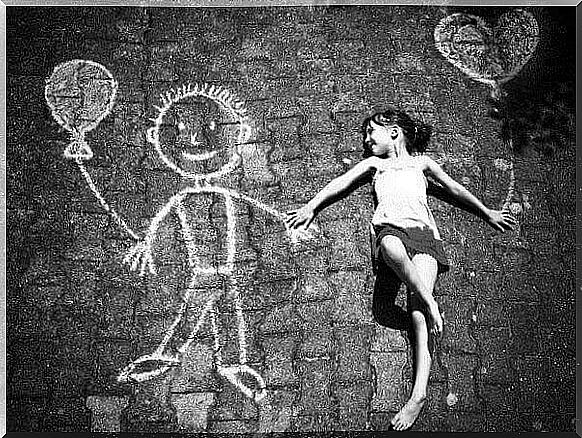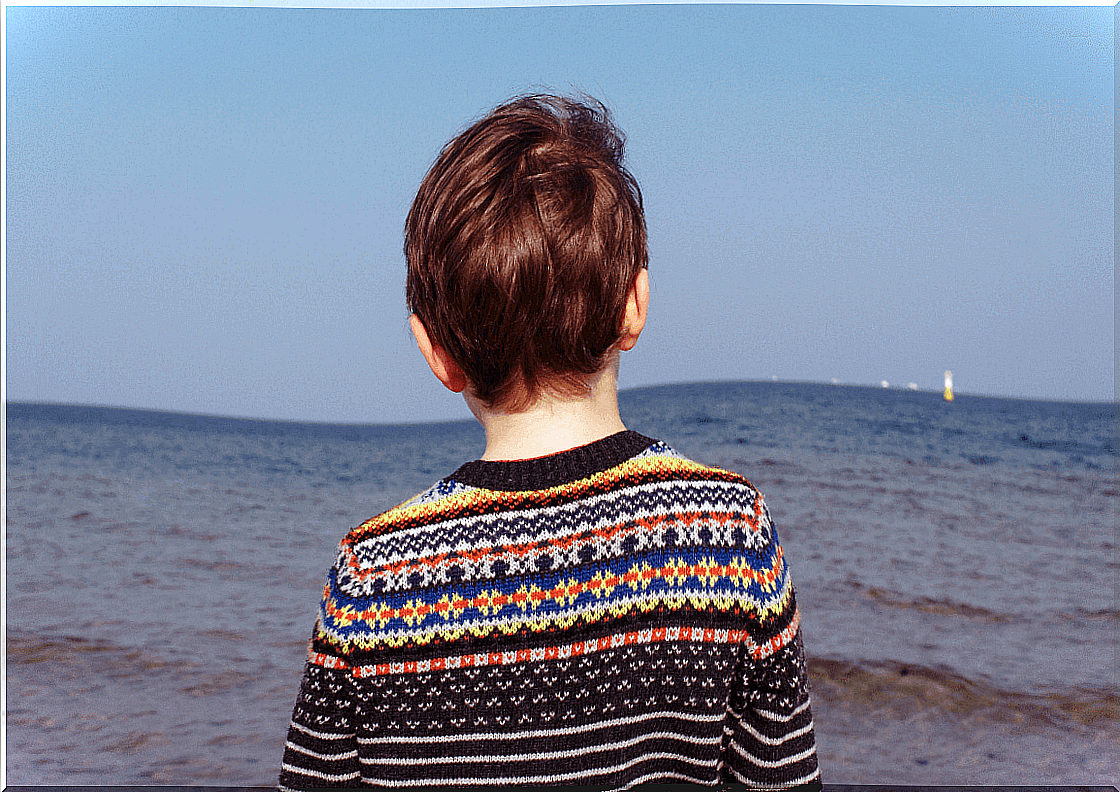Learning To Understand A Child’s Grief

Children are often forgotten when the talk turns to grief and loss. As adults, we need to help them express their feelings. However, sometimes we are not prepared to go through this process with them. In this article, we’re going to learn strategies on how to provide support when a child is in grief.
Fortunately, most children can cope with their grief without major complications. But that doesn’t make it any less important to help them and understand their grieving process a little better. In addition, the grieving process that we ourselves go through when we are lost will also determine which process we choose.
Childhood grief
We usually associate the process of grieving with death. The death of a family member or loved one is undoubtedly one of the most difficult situations to face, but the process of grieving also begins as a result of other losses: the loss of a job or circle of friends, the departure of a loved one, a pet, the end a relationship, etc. Grief is the process of emotional adjustment that follows loss.

Children react differently to loss. It depends on how “big” you already are, how you received the news of the loss, whether you were prepared for it, and how the adults around you reacted. Experiences already made also play a role.
Adults tend to be poorly prepared to come to terms with grief because of their reluctance to talk about death, terminal illness, abandonment, and divorce. But feelings that arise in the process of grief must be felt in order to deal with them. This applies to adults and also when a child is in mourning.
Fortunately, we can always learn new strategies. For example the following:
- When a person dies, he leaves a void. It is necessary to face the fact that the person is no longer there and will never come back. The child must also accept that they will never see these people again. In order for it to be able to do this, it is necessary that the adult who leads it through the grieving process also accept the loss for themselves.
- Feelings like sadness, depression, and emptiness are normal. Just like feeling pain, even physical pain. The child should be encouraged to feel and accept these feelings. The pain cannot be denied or suppressed. Otherwise it can lead to depression and therapy is required.
- That means that you continue to live with this void. To do this, people may have to take on new roles. For example, it’s hard to prepare lunch the way mom used to do it when you lived together. Accepting that is important so that you can develop yourself further.
- Memories are not lost. The child can and should reserve a corner in his heart for what he has lost. Then it can look back and talk about it without suffering from it. The child will not be forgotten. Like an adult, they will be able to see ahead despite the loss they have suffered.
Grief stemming from childhood and poorly processed can leave scars that still mark us in adulthood.

When a child is in grief, he or she may show new behaviors that are due to the grieving process and that do not need to be a cause for concern. These include a changed sleep behavior, digestive problems, a step backwards into previous phases such as thumb sucking and bed wetting, feelings of guilt and periods of intense fear.
But there are other behaviors that should be interpreted as warning signs. Signs of excessive suffering are an enormous fear of being alone, no play instinct, keeping away from your own friends, declining academic performance and running away from home. After the death of a family member, excessive imitation of the deceased can sometimes be observed.
Stories that help the child in their grief
Feelings arise that make it difficult for us to put what has happened in words. But our feelings have to find an expression. This is easier with the help of stories. Loss-related narratives are very useful for parents and professionals to help their children grieve and adapt to the new situation.
An example of this is The Way You Are. Tailored for young children, this story is about the unconditional love between a mother and her son. The author Debi Gliori not only addresses the important topic of love in its immortality and permanence, but also deals with the topic of death.
Depending on the age of the child, the following strategies may also help:
- Spend more time with him
- Encourage them to express their feelings
- Share your feelings with the child
- Correcting inappropriate behavior
- Keeping it busy with family activities
- Calm your fears
If the child’s symptoms persist or you don’t know what to do, you can always seek advice from a child psychologist. Indeed, if the subject of grief seems too complex to you, this is the best you can do.









